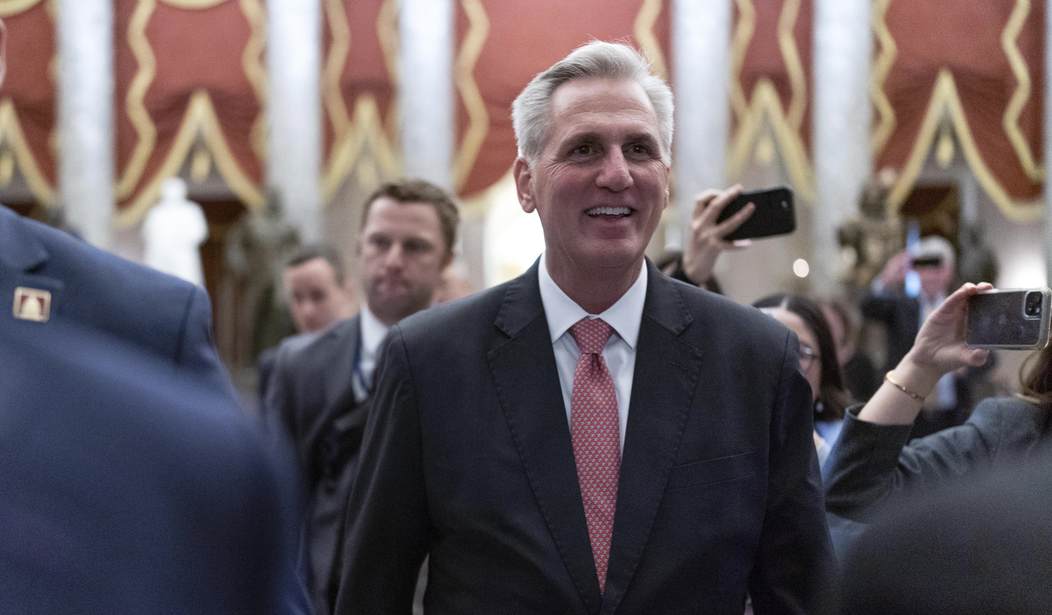With barely five days remaining until the projected "X-date" on which the United States is set to default on its debt, House Speaker Kevin McCarthy (R-CA) brought the Fiscal Responsibility Act — legislation resulting from a negotiated spending deal made with President Joe Biden — to the floor for consideration.
The result: successful passage of the 99-page bill in a vote that came down 314-117.
Falling along anything but party lines, the legislation to raise the debt ceiling and avoid default was supported by 165 House Democrats and 149 House Republicans while 71 members of the GOP Conference voted no along with 46 Democrats:
House okays debt ceiling bill 314-117
— Chad Pergram (@ChadPergram) June 1, 2023
149 Republicans voted yea
165 Democrats voted yea.
So there were more Democratic yeas even though they are in the minority
B) 149 GOPers voted yea
— Chad Pergram (@ChadPergram) June 1, 2023
165 Dems voted yea
71 GOPers voted no
46 Dems voted no
2 Dems missed the vote
2 GOPers missed the vote
House Financial Services Committee Chairman Patrick McHenry (R-NC) heralded the successful vote on the Fiscal Responsibility Act, calling it "the most conservative spending package during my time in Congress" and "the largest deficit-reduction bill in at least a decade," one that "will fundamentally change the spending trajectory in Washington."
McHenry added:
For the first time in a debt-limit negotiation, the U.S. government will spend less money than it did the year before. We achieved historic spending cuts that will help bring down inflation, consequential reforms to help Americans get out of poverty and back into the workforce, claw backs of billions of dollars of COVID money, and transformational permitting reforms that cut red tape for energy and infrastructure projects. This bill will block the Administration from imposing new taxes during a time of economic uncertainty and rein in Biden’s executive overreach through a statutory administrative pay-go rule. This agreement will also change the way Washington operates by compelling a workable appropriations process.
Recommended
Rep. Ken Buck (R-CO), one of the most vocal opponents of the deal, said he voted against the legislation "because our current financial situation is unsustainable, and this bill only ramps up the timeline to our government’s eventual default."
Buck explained his reservations:
Back in 2022, the American people gave Republicans the majority in the U.S House of Representatives because they wanted us to rein in the Democrats’ out-of-control spending. Yet Speaker McCarthy chose to negotiate a deal that codifies the post-COVID 2022 discretionary spending baseline, adds $4 trillion to the debt in less than two years, upholds Biden’s student loan bailout, funds 85,000 new IRS agents, and ensures Democrats don’t have to deal with the political fallout of raising the debt ceiling prior to the 2024 election. I can't imagine a better deal for Democrats or a worse deal for our nation.
The legislation now heads to the U.S. Senate for a vote and, presuming its passage in the upper chamber, President Joe Biden's desk for signature in time to prevent a default on the nation's ever-increasing debt.

























Join the conversation as a VIP Member